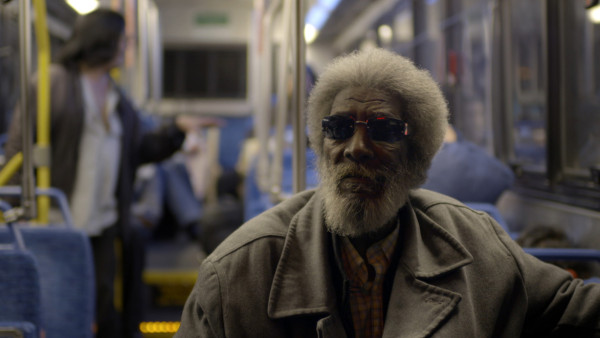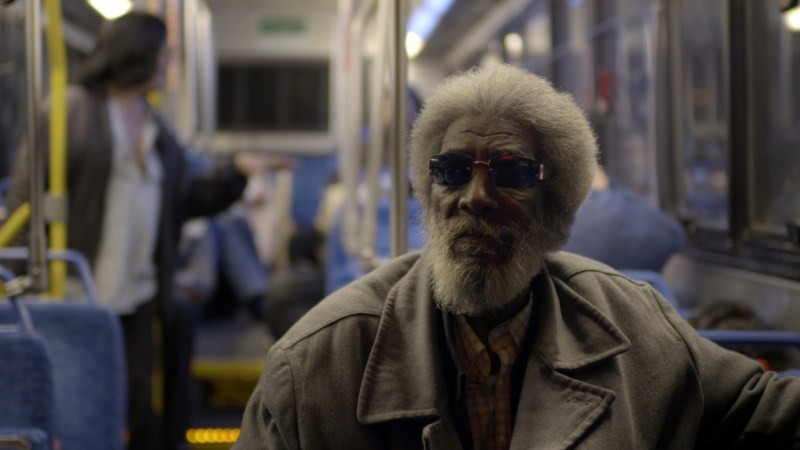
Equal parts atmospheric and jarring, director-producer Elizabeth Lo’s “Hotel 22” is a poetic and frequently poignant glimpse into life aboard Silicon Valley’s only overnight bus service over a single night. Lo, a current second-year student in Stanford’s prestigious documentary MFA program, is still wet around the ears. Here, however, she directs with assured professional finesse. Though “Hotel 22” — currently screening at this year’s Sundance Film Festival in the Documentary Short Film Program — is more muted than commanding. Its images of exhaustion, both emotional and physical, are vividly poignant. Lo does not aim for cheap sympathy; she provokes reflection. The product of Lo’s labors is a genuine success.
Palo Alto’s Line 22 bus, which runs through the evening, has become an impromptu haven for the homeless, in recent years, providing shelter from the cold, dark California evenings. These wandering patrons pay a fare, like all other customers, and then pass the night — or at least a few hours of the night — attempting to catch a shade of rest before sunrise. It’s a sad plight, but one these weary souls accept with quiet resolution.
Lo chooses to take the road less travelled, adopting an observational approach to the film’s proceedings. In turn, Lo’s film lives, breathes, and stands on its own two feet without exploitative white-guilt-inspired pity. There are no interviews in “Hotel 22,” no forced interpretation of reality. “Hotel 22,” like life, merely happens. Sure, certain scenes are selected and ordered for viewing, but these subtle directorial decisions feel necessary and utterly natural. How could Lo blindly ignore a laughable PA announcement which asks the homeless to be conscious of their phone usage? Or the drunken outsider who savagely disparages the Bus’s occupants for simply existing? In “Hotel 22” reality is ordered but, in the end, reality is never disregarded.
Also admirable is Lo’s cinematographic eye: With a palette of cold and gloomy blues, Lo accentuates the grudging submission of the film’s subjects. This frigidity is matched in potency only by Lo’s use of the bus’s harsh fluorescent lighting. Piercing the vehicle’s interior, these jarring overhead lights underscore Lo’s message: For these nomads, the sun never sets. Here are a forgotten people, constantly beaten down, unsafe and unwanted even within the confines of their lone sanctuary. In the constantly shifting world of “Hotel 22,” there is no relief.
Laid over all of these proceedings is the film’s ambient soundtrack — by sound recordist Christopher Giamo, sound editor Dan Olmsted, and composer Johnathan Zalben — which further accentuates the atmosphere of the film’s unique mobile environment. Composed of discordant grumblings, labored breathing, and other superficially arbitrary noises, Giamo’s recordings blend surprisingly well with Zalben’s synth-y score, producing a nightmarish hyper-reality that further contributes to the film’s brooding mood.
In sum, Elizabeth Lo’s breakout film is thoroughly imagined and sincerely impactful. Never didactic or elitist, “Hotel 22” attains emotional resonance by finding words amidst the silence.
“Hotel 22” can be viewed through The New York Times Op-Docs program here.
Contact Will Ferrer at wferrer ‘at’ stanford.edu
